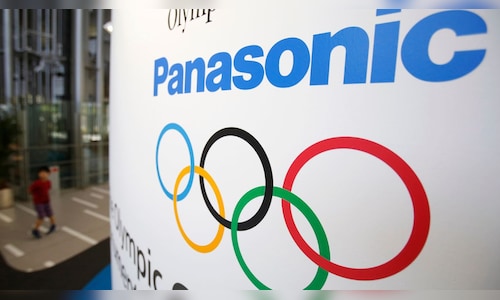Panasonic is one of 15 companies that are the so-called TOP sponsors of the International Olympic Committee. The value of Panasonic’s sponsorship is unknown, but sponsors contribute more than $2 billion in a four-year cycle to the IOC.
Two other Japanese companies are among the IOC’s 15 main sponsors. Toyota, which has been looking to end its contract for several months, was contacted by The Associated Press on Tuesday but did not provide any new information.
Read also: Paris Olympics: Meet the Top 10 Sponsors: Coca-Cola, Omega, Bridgestone and more
“Toyota has supported the Olympic and Paralympic movements since 2015 and continues to do so,” Toyota said in a statement. “Toyota has not made any announcements suggesting otherwise.”
Japanese sponsors appear to have turned their backs on the Olympics, likely due to the one-year delay in holding the Tokyo 2020 Olympic Games. The COVID-19 delay reduced sponsors’ visibility as fans were not allowed into competition venues, increased costs and uncovered a myriad of corruption scandals surrounding the Games.
Tire maker Bridgestone told AP that “nothing has been decided.”
Toyota had a contract valued at $835 million, which was reported to be the IOC’s largest when it was announced in 2015. It included four Olympic Games beginning with the 2018 Pyeongchang Winter Games in South Korea and continuing through the recently concluded Paris Olympic and Paralympic Games.
Reports in Japan suggest Toyota may maintain its sponsorship of the Paralympics.
The main sponsors of the IOC are: ABInBev, Airbnb, Alibaba, Allianz, Atos, Bridgestone, Coca-Cola, Deloitte, Intel, Omega, Panasonic, P&G, Samsung, Toyoto and Visa.
In a report published several months ago by Japanese news agency Kyodo, unnamed sources said Toyota was unhappy with the way the IOC uses sponsorship money. It claimed the money “is not used effectively to support athletes and promote the sport.”
Japan was once a major source of revenue, but the IOC has increasingly sought sponsors from China, with growing interest from the Middle East and India.
Japan officially spent $13 billion on the Tokyo Olympics, at least half of which was public money. A government audit found the actual cost was twice that. The IOC’s contribution was about $1.8 billion.
The Tokyo Games were mired in corruption scandals involving local sponsorships and the awarding of contracts. Dentsu Inc, the huge Japanese marketing and public relations firm, was the marketing arm of the Tokyo Olympics and raised a record $3.3 billion in local sponsorships. This figure is separate from TOP sponsors.
French prosecutors also investigated alleged vote-buying in the IOC’s 2013 decision to choose Tokyo as host of the 2020 Summer Games.
The IOC had revenues of $7.6 billion in the last four-year cycle that ended with the Tokyo Games. Figures for the cycle that ends with the Paris Olympics have not yet been released.
The IOC’s main sponsors paid more than $2 billion in that period. The figure is expected to reach $3 billion in the next cycle.
Disclaimer:
The information contained in this post is for general information purposes only. We make no representations or warranties of any kind, express or implied, about the completeness, accuracy, reliability, suitability or availability with respect to the website or the information, products, services, or related graphics contained on the post for any purpose.
We respect the intellectual property rights of content creators. If you are the owner of any material featured on our website and have concerns about its use, please contact us. We are committed to addressing any copyright issues promptly and will remove any material within 2 days of receiving a request from the rightful owner.

